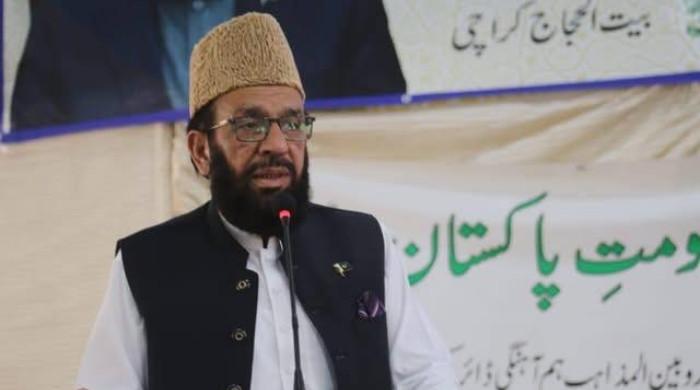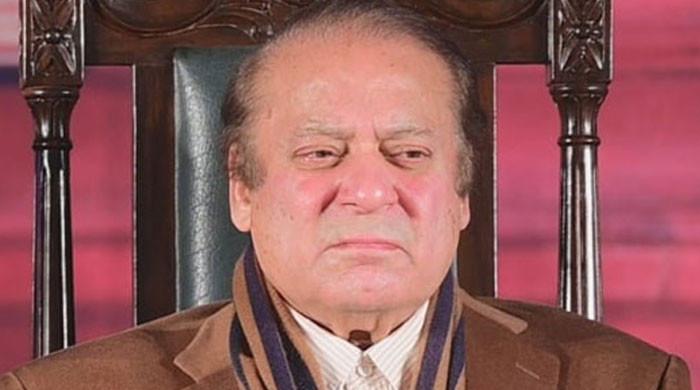IMF resistance to power tariff cut no longer a concern, says PM Shehbaz
Global lender's chief has assured IMF will duly consider Pakistan's plan to cut power tariffs, says premier
February 12, 2025

- Army chief Asim Munir accompanies PM in key meetings in Dubai.
- Prospects of economic cooperation discussed with UAE president.
- PM hails record remittances sent by overseas workers in January.
Prime Minister Shehbaz Sharif on Wednesday said that concerns over the International Monetary Fund (IMF) rejecting a reduction in electricity prices had been put to rest.
Inflation-stricken consumers in Pakistan have been grappling with unaffordable power tariffs in recent years. These spikes have stirred social unrest and shuttered industries in the $350 billion economy, which has contracted twice in recent years as inflation hit record highs.
“The global lender's chief has assured that Pakistan's plan for lowering power tariffs will be given due consideration,” the premier said while sharing details of his recent visit to Dubai with a federal cabinet meeting.
PM Shehbaz on Tuesday met IMF Managing Director Kristalina Georgieva on the sidelines of the World Government Summit (WGS) 2025 in Dubai, as the first review of a $7-billion bailout, scheduled for early March, looms.
Chief of the Army Staff (COAS) General Syed Asim Munir also accompanied PM Shehbaz on an official visit to Dubai, where both leaders held talks with United Arab Emirates (UAE) President Sheikh Mohammed bin Zayed Al Nahyan on bilateral ties and investment opportunities.
Addressing the meeting Shehbaz said in his meeting with the IMF’s managing director in Dubai he discussed the challenges faced by Pakistan’s power sector at length.
"I told her that industries can only run and economic growth can be achieved if the cost of production is reduced," he said, adding that the IMF official gave a positive response.
“The concern that the IMF would not accept a power tariff reduction has now been dispelled,” Shehbaz said, adding that the international lender has invited Pakistan to present its plan for lowering electricity prices.
The prime minister also commended his economic team for an excellent job in negotiating the loan deal and executing the agreed reforms, saying the IMF had acknowledged their efforts. The PM also had the cabinet cheer the team’s excellent work for securing the critical bailout.
Speaking on Pakistan’s ties with Saudi Arabia, Shehbaz said, "Riyadh has always been a trusted and brotherly partner and Pakistan will never compromise on Saudi Arabia’s sovereignty, security, and territorial integrity.”
Vowing to further facilitate overseas workers in terms of smoother transactions, the premier also noted a sharp rise in overseas remittances, attributing the surge to the Pakistani diaspora’s confidence in the government.
Remittances sent to Pakistan surged to $20.8 billion in the seven months of fiscal year 2025 from $15.8 billion (31.7 per cent) a year earlier, the State Bank of Pakistan (SBP) said earlier this week, a sign that contributions from overseas workers continue to support the nation’s economy.
Addressing the recent tragedy in Libya, where several Pakistanis lost their lives in a migrant boat disaster, the PM called for strict action to end human trafficking, saying, “We must wake up and put an end to this dark trade.”
In a statement issued by the Prime Minister's Office (PMO), the premier said Pakistan's economy was on a path to long-term recovery, thanks to a stabilisation programme backed by the IMF.
In a post on X, Georgieva said, "I am encouraged by their strong commitment to Pakistan's IMF-supported reforms and support their decisive actions."
These would help pave the way to higher growth and more jobs for Pakistan's youthful population, she added.
Ahead of the IMF review, the government and central bank have expressed confidence about meeting its targets, even as Pakistan struggles to navigate the recovery, following the bailout secured in September.
Tuesday's meeting focused on the macroeconomic stability brought by the government's reform agenda under the IMF programme and efforts to maintain fiscal discipline, Sharif's office said.
He vowed to keep up the momentum for reform, particularly in areas such as taxes, energy efficiency and private sector development, it added.
A three-member IMF mission is separately in Pakistan for an assessment under the EFF programme.











